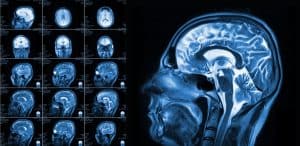 Defense lawyers will often try to argue that you can’t really have a traumatic brain injury because standard diagnostic tests don’t objectively prove your injury. Well, the truth is that many times imaging tests are far from conclusive.
Defense lawyers will often try to argue that you can’t really have a traumatic brain injury because standard diagnostic tests don’t objectively prove your injury. Well, the truth is that many times imaging tests are far from conclusive.
To diagnose a TBI, health care providers may use one or more tests that assess a person’s physical injuries, brain and nerve functioning, and level of consciousness. Neurologists, ER doctors, and other physicians use many different types of tests depending on how your injuries occurred and the life-threatening nature of your traumatic brain injury.
Tests used to diagnose traumatic brain injuries
The main test that is used is a response test called the Glasgow Coma Scale (GCS). This test examines your ability to:
- Speak and communicate in ways that make sense, or if you can speak at all
- Open your eyes when asked and on your own
- Move your arms voluntarily and in response to pain stimuli
The CGS tests are graded depending on how well you can respond. A score of 13-15 indicates you have a mild TBI. A score between 9 and 12 indicates a moderate TBI. Scores of 8 and lower indicate a severe TBI. The CGS test is an indicator. It’s not necessarily conclusive.
Additional brain injury tests examine such factors as how long a patient is unconscious and the level of any memory loss. Speech tests examine patients’ abilities to control their speech, their vocabulary, and their capacity to read or write. The patient may be examined for his/her ability to swallow. Patients are also given tests to analyze their ability to process information and to solve problems.
A neuropsychologist may conduct additional tests and questions to understand what the patient’s abilities were before the injury – such as job or school performance.
Imaging tests used to evaluate a TBI
Many times, an MRI, CT scan, or X-Ray isn’t the first test doctors will use. Magnetic resonance imaging tests (MRIs), in particular, are macroscopic, which means they show larger injuries but not injuries at the microscopic level. This test normally isn’t used for an initial TBI evaluation because it takes too long.
Other possible tests, according to brainline.org, to determine if a person has a TBI or other brain-related disorders following an accident include:
- CT (computerized tomography) scan. This test essentially takes multiple X-Rays. It can show if a patient has bruised brain tissue, if the brain is bleeding, or other types of damage.
- Intracranial pressure (ICP) monitoring. This test is for swelling of the brain. If there is swelling, a drain or shunt may be used to help reduce the swelling.
- EEG (electroencephalogram). This test records the brain’s electrical activity.
- A video assessment of the ability to swallow.
- X-Rays.
The Gladiators in Suits at the Rocky McElhaney Law Firm understand how difficult it can be to diagnose and treat a traumatic brain injury. We are experienced at working with neurosurgeons, neurologists, family doctors, specialists, and many different types of therapists. Our Nashville TBI lawyers work with family members who often serve as caregivers.
To schedule an appointment, please phone us at 615-246-5549 or complete our contact form. We are located in Nashville, Hendersonville, and Knoxville, and we represent TBI victims throughout Tennessee. We see TBI patients at their home when necessary.
